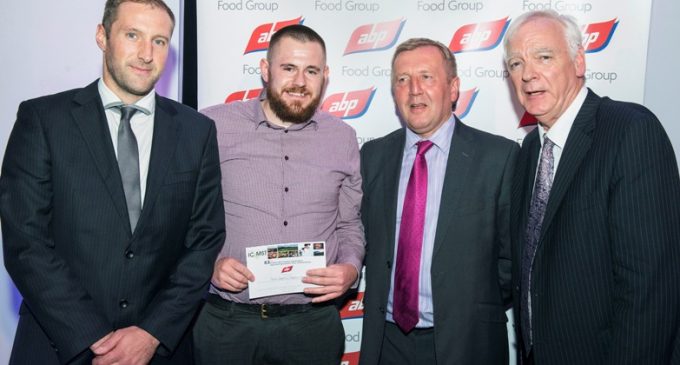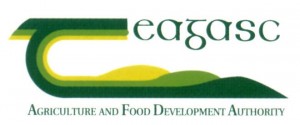Nurturing Locally, Growing Globally – International Meat Congress ICoMST 2017 in Cork

The 63rd International Congress of Meat Science and Technology (ICoMST 2017) took place at the Rochestown Park Hotel, Cork, during August 13-18, 2017 and was chaired by Teagasc’s Assistant Director of Research Declan Troy. Over 450 papers were presented at the congress, many by Teagasc researchers.
The role of meat in strategies to achieve a sustainable diet lower in greenhouse gas emissions was presented by Dr Maeve Henchion, Teagasc, Rural Economy and Development Programme. Dr Henchion highlighted the complexities regarding sustainability in terms of meat consumption and highlighted possible strategies that could be implemented to mitigate its climatic impact. Dr Henchion outlined how sustainable diets are possible without the elimination of meat: “For instance, over-consumption of food in general, beyond our nutritional requirements, was found to be a significant contributor of emissions. Non-voluntary and voluntary mitigation strategies offer potential to reduce dietary greenhouse gas emissions. All mitigation strategies require careful consideration but on-farm sustainable intensification perhaps offers the most promise. However, a balance between supply and demand approaches is encouraged. Health should remain the overarching principle for policies and strategies concerned with shifting consumer behaviour towards sustainable diets.”
 Demand for protein is continuously increasing and despite advances on research and development of alternative protein sources, animal protein still holds a key role in the supply of this essential nutrient. Teagasc researcher Dr Anne Maria Mullen explains: “Approximately half of the live weight of animals raised to produce meat is categorised as ‘the fifth quarter’, commanding lower market values than prime meat cuts. From the sustainability as well as from the protein quality points of view, it makes sense to explore the available sources of high quality protein already available, but not utilised to its fullest potential.” Her talk summarised current opportunities for aggregating value to some of these protein-rich co-products from the meat processing chain, underpinned by research advances on both technical and social aspects. The work is part of a large research initiative looking at the exploration of Irish meat processing streams for recovery of high value protein based ingredients for food and non-food uses – the ReValueProtein project.
Demand for protein is continuously increasing and despite advances on research and development of alternative protein sources, animal protein still holds a key role in the supply of this essential nutrient. Teagasc researcher Dr Anne Maria Mullen explains: “Approximately half of the live weight of animals raised to produce meat is categorised as ‘the fifth quarter’, commanding lower market values than prime meat cuts. From the sustainability as well as from the protein quality points of view, it makes sense to explore the available sources of high quality protein already available, but not utilised to its fullest potential.” Her talk summarised current opportunities for aggregating value to some of these protein-rich co-products from the meat processing chain, underpinned by research advances on both technical and social aspects. The work is part of a large research initiative looking at the exploration of Irish meat processing streams for recovery of high value protein based ingredients for food and non-food uses – the ReValueProtein project.
Carbon monoxide (CO) has many value-added benefits in meat packaging due to its colour stabilising effects and enhancement of meat quality attributes. The regulation of CO within meat packaging varies worldwide and remains a topical and controversial issue. CO is prohibited in the EU for use in meat packaging mainly due to fears it may mask spoilage therefore misleading consumers. The issue of consumer acceptance of CO was not considered. Teagasc’s Dr Lauren Van Rooyen explains: “Applying CO pre-treatments prior to vacuum packaging enhances colour while allowing discolouration to occur by the use-by-date, thereby addressing concerns about safety. Recent work showing European consumer acceptance of CO in meat packaging demonstrates its future potential within the EU. The information provided may support framing future policies intended to assure consumer protection, safety, choice and interest. Re-evaluation of permitting CO as a packaging gas within the EU may be warranted.”
The main theme of the 63rd ICoMST was nurturing locally, growing globally. Teagasc’s Assistant Director of Research and Congress Chair, Declan Troy explains: “In addressing this, it was considered how science can offer the meat production and processing sector solutions to enable it to nurture sustainably at local level while offering opportunities to grow globally.”
Dr Carlos Alvarez, a post-doctoral researcher in the Department of Food Quality and Sensory Science, Teagasc Food Research Centre, Ashtown, won runner-up in the International Meat Secretariat Prize at the congress for his work on the Re-Value Protein project.
Teagasc Walsh Fellow Jamie Cafferky, Department of Food Quality and Sensory Science, Teagasc Food Research Centre, Ashtown, won the ABP student award for best industry relevant oral presentation prize at the congress for his work on sensory and texture attributes of beef.
CAPTION:
Pictured at the International Congress of Meat Science and Technology (ICoMST) in Rochestown, Cork on ‘nurturing locally, growing globally’ are Joe Spzalek, ABP, Jamie Cafferky, Teagasc, best industry relevance oral presentation, Michael Creed TD, Minister for Agriculture, Food & the Marine and Declan Troy, Congress Chairman, Teagasc. Photo O’Gorman Photography.

































